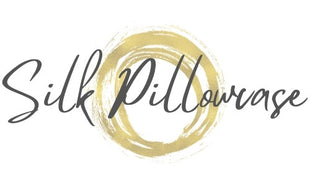One of the things we’ve found actually makes afro hair easier to care for than other types is that you can get away with washing it less often .Once every week - or even a fortnight - is usually sufficient, depending on your preference and how your locks behave.
Use a shampoo and conditioner designed for curly or afro hair and never use hot water. Warm water is far kinder to your curls and coils.
When choosing the right shampoo and conditioner, the number one rule is to make sure they are free from sulphates.
Many of the labels on hair care products now state that they are sulphate-free, but if not look at the ingredients. This to avoid may include ammonium lauryl (or laureth) sulphate or sodium lauryl sulphate.
Blow-drying afro hair is a no-no. Unless you really have to resort to heat, avoid picking up the hairdryer altogether. Even a low heat setting is capable of causing damage.
Allow your hair to dry naturally instead - and never use a towel. See the next tip for more on that…
Drying afro, wavy or curly hair with a towel is never a wise move. Instead, try carefully wrapping an old t-shirt around your hair instead.
This is one of the steps recommended by experts in caring for curls and waves, such as innovative hair care brand Merwave or exponents of the curly girl method.
- Hydration, hydration, hydration
Make sure your hair is well hydrated at all times - and this is a process that only begins with the application of conditioner when showering.
Experiment with leave-in conditioners. These often come in spray form, so they’re quick and easy to apply. Those designed for afro or curly locks are again the best choices.
We’ve found the right hairstyles to be a girl’s best friend when it comes to afro hair. Plaits, buns and braids are all good.
These styles look great and help keep the hair in place. They also aid in protecting the hair from damage - as long as it’s not done up too tightly.
Oil is great for afro locks, and it doesn’t have to be expensive. Readily-available natural oils like avocado, coconut or olive oil are all good. These can be applied on top of your leave-in conditioner.
If you’re seeking a more luxurious product for more occasional use, jojoba, grapeseed, or Jamaican black castor oils are all great options.
If we are what we eat, this will of course be reflected in the hair. For healthy locks, you need a balanced diet containing lots of vitamins and minerals, protein, iron and Omega-3 fatty acids.
Try to include a rainbow of fruit and veg, including green leafy vegetables like spinach. Eggs, lean meat, salmon, avocado and walnuts can also be particularly beneficial.
As well as using water when you wash your hair, it’s vital to stay hydrated so your afro hair stays moisturised from within.
A spray bottle of water can also help when detangling. Just make sure you stick to a wide-toothed comb designed for this hair type.
While satin may be better than cotton in terms of the smooth texture, good quality silk is the best choice by far for healthy, good-looking hair.
As satin is man-made, it can cause static, making even the most well-behaved locks look pretty wild. Silk is natural, and doesn’t absorb moisture from the hair while you sleep as cotton does.
